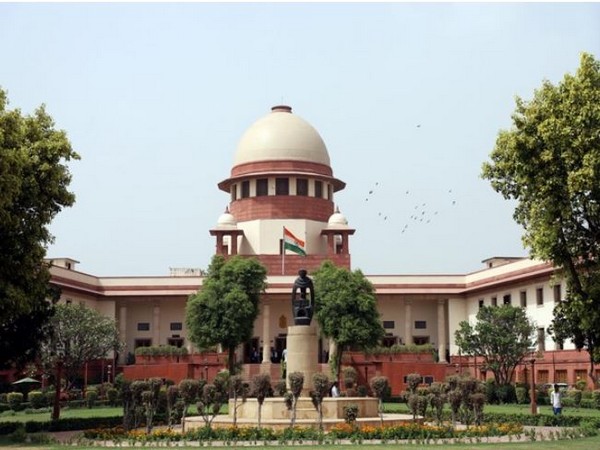Another plea in SC challenging Places of Worship Act 1991
Another plea was filed in the Supreme Court challenging the Constitutional validity of certain sections of the Places of Worship (Special Provisions) Act 1991, saying that the Act takes away the rights of Hindus, Jains, Buddhists, and Sikhs to restore their 'places of worship and pilgrimages', destroyed by invaders.

- Country:
- India
Another plea was filed in the Supreme Court challenging the Constitutional validity of certain sections of the Places of Worship (Special Provisions) Act 1991, saying that the Act takes away the rights of Hindus, Jains, Buddhists, and Sikhs to restore their 'places of worship and pilgrimages', destroyed by invaders. The PIL filed by former Member of Parliament, Chintamani Malviya stated, "It excludes the birthplace of Lord Rama but includes the birthplace of Lord Krishna, though both are the incarnation of Lord Vishnu, the creator and equally worshipped all over the world."
The plea further stated that the Act blatantly offends the right of Hindus, Jains, Buddhists, and Sikhs to restore, manage, maintain and administer the places of worship and pilgrimage guaranteed under Article 26 of the Indian Constitution. The plea filed has challenged the constitutional validity of Sections 2, 3, and 4 of the Places of Worship (Special Provisions) Act 1991, which it said offends Articles 14, 15, 21, 25, 26, 29 and violates the principles of secularism and rule of law, which is an integral part of Preamble and the basic structure of the Constitution.
Advocate Ashwini Upadhyay; Anil Kabotra, a retired army officer; Rudra Vikra, resident of Varanasi; Swami Jeetendranand Saraswati, a religious leader; Devkinandan Thakur Ji, resident of Mathura and a religious guru among others have already filed a plea in the apex court against the 1991 Act. The pleas said that the Act violates the principles of secularism and Sections 2, 3, and 4 of the Act have taken away the right to approach the Court and thus right to judicial remedy has been closed.
Section 3 of the Act bars the conversion of places of worship. It states, "No person shall convert any place of worship of any religious denomination or any section thereof into a place of worship of a different section of the same religious denomination or of a different religious denomination or any section thereof." Section 4 bars filing any suit or initiating any other legal proceeding for a conversion of the religious character of any place of worship, as existing on August 15, 1947.
The Places of Worship Act 1991 is void and unconstitutional for many reasons, the plea said, adding that it offends the right of Hindus, Jains, Buddhists, and Sikhs to pray, profess, practice and prorogate religion (Article 25). The Act infringes on the rights of Hindus, Jains, Buddhists, and Sikhs to manage maintain and administer the places of worship and pilgrimage (Article 26), it added.
The Act deprives Hindus, Jains Buddhists, and Sikhs of owning/acquiring religious properties belonging to deities (misappropriated by other communities). It also takes away the right of judicial remedy of Hindus, Jains, Buddhists, and Sikhs to take back their places of worship and pilgrimage and the property which belongs to deity, stated the pleas. The Act further deprives Hindus, Jains, Buddhists, and Sikhs to take back their places of worship and pilgrimage connected with cultural heritage (Article 29) and it also restricts Hindus, Jains, Buddhists, and Sikhs to restore the possession of places of worship and pilgrimage but allows Muslims to claim under Section 107, Waqf Act, the pleas added.
"The Act legalizes barbarian acts of invaders. It violates the doctrine of Hindu law that 'Temple property is never lost even if enjoyed by strangers for years and even the king cannot take away property as the deity is the embodiment of God and is juristic person, represents 'Infinite the timeless' and cannot be confined by the shackles of time," one of the petitions stated. "It is respectfully submitted that the Central Government by making impugned provision (Places of Worship Act 1991) in the year of 1991 has created arbitrary irrational retrospective cutoff date, declared that character of places of worship and pilgrimage shall be maintained as it was on August 15, 1947, and no suit or proceeding shall lie in the court in respect of the dispute against encroachment done by barbaric fundamentalist invaders and such proceeding shall stand abated," the PILs stated.
The pleas sought direction to declare that Section 2, 3 and 4 of the Places of Worship (Special Provisions) Act, 1991 is void and unconstitutional for being violative of Articles 14, 15, 21, 25, 26, 29 of the Constitution of India in so far as it legalises 'the ancient historical and puranic places of worship and pilgrimage', illegally occupied by foreign invaders. (ANI)
(This story has not been edited by Devdiscourse staff and is auto-generated from a syndicated feed.)










